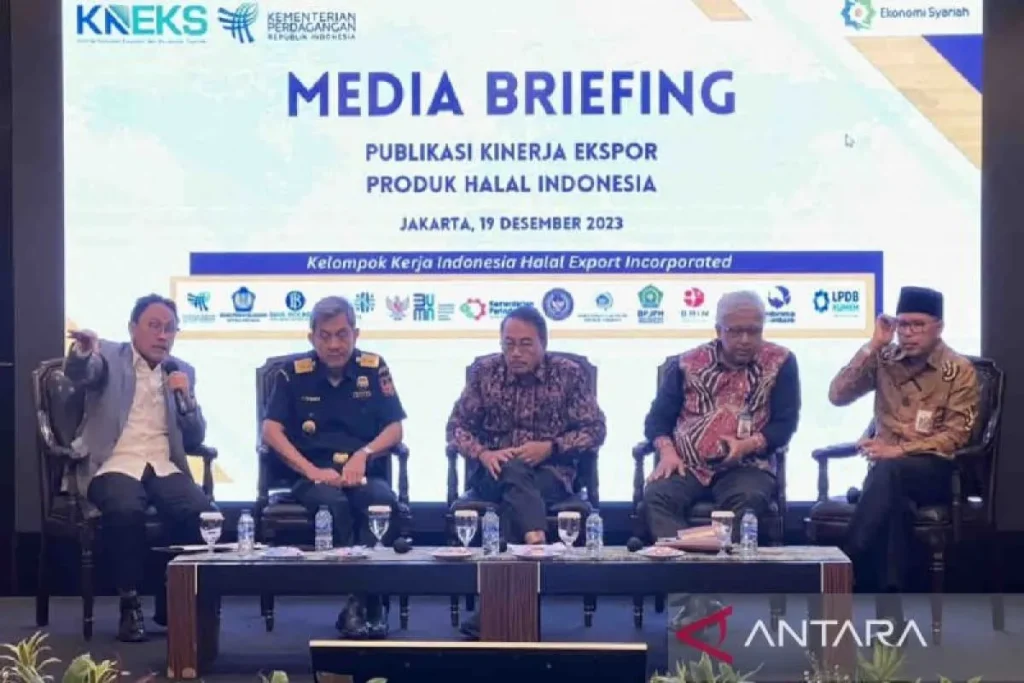
Head of the BPJPH Muhammad Aqil Irham (left), Director General of National Export Development of the Ministry of Trade Didi Sumedi (center), Director of Customs Facilities and Directorate General of Customs and Excise of the Ministry of Finance P. Tri Wikanto (second left), Head of the Department of Economics and Sharia Finance of Bank Indonesia Arief Hartawan (second right), Director of Sharia Business and Entrepreneurship of the National Committee for Sharia Economics and Finance (KNEKS) Putu Rahwidhiyasa (right), in Jakarta
Jakarta (ANTARA) – Head of the Halal Product Assurance Organizing Agency (BPJPH), Muhammad Aqil Irham, claimed his organization had provided religiously permissible (halal) certificates to 3.4 million products in Indonesia within four years.
“From October 2019 to December 2023, some 3,419,649 products have been certified as halal,” Irham remarked during the publication of the export performance of Indonesian halal products in Jakarta on Tuesday.
The 3.4 million products comprised 490,561 large-scale products, 151,754 medium-scale products, 200,679 small-scale products, and 2,552,520 macro-scale products.
Based on data from Statistics Indonesia (BPS), as of 2022, the number of small and medium industries (SMIs) in Indonesia reached 4,339,228.
According to BPS, the food and beverage industry accounted for 47 percent of the total, or 1,592,318 people. There were 1,134,425 halal-certified SMIs, with the potential for 487,893 uncertified food and beverage SMIs, reaching around 11 percent.
Irham explained that the data does not include the possibility of increasing the number of business actors or the existence of business actors that have not been recorded by BPS.Halal product certification provides legal assurance regarding the halal status of a product that is marketed both domestically and for export.
According to Irham, all food and beverage products, raw materials, ingredients, and additional supplies for food and beverage products, slaughter products, and slaughter services in Indonesia must be halal certified by October 2024.
Indonesia completed the first step of halal requirements on October 18, 2024, necessitating halal-certified imported raw materials, such as buffalo meat, cattle, and sheep, from Australia and India.
Furthermore, Irham admitted that his side is presently working hard to guarantee that slaughterhouses importing meat to Indonesia receive halal certificates as a commitment to upholding halal standards in the country’s meat supply chain.



